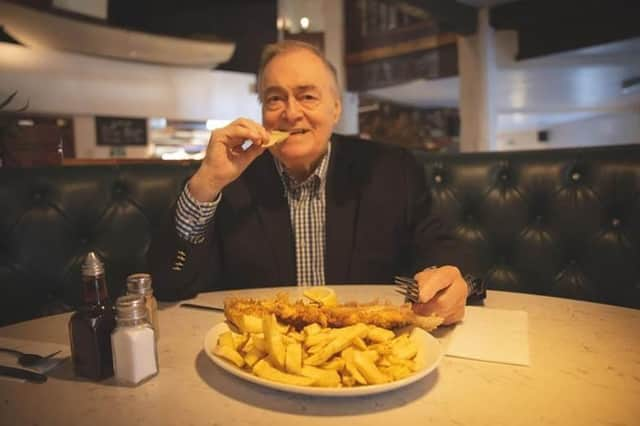COP26: John Prescott planning Hull fish and chip lesson for global leaders on net zero


Lord Prescott, who was part of the negotiations for the Kyoto Treaty at COP3 in 1997, will be at COP26 in Glasgow tomorrow to highlight the work of the Humber region in reducing carbon emissions with policies he believes could be replicated across the world.
The Humber’s Industrial Cluster, based around the Humber Estuary, emits more CO2 than any other cluster in the UK and is responsible for five per cent of this country’s total carbon emissions. Despite this current position, Hull is aiming to reach net zero by 2030 – 20 years ahead of the UK’s current official target.
Advertisement
Hide AdAdvertisement
Hide AdLord Prescott has worked with the University of Hull and its Aura Innovation Centre to develop an ‘Estuarial Model’ that aims to slash carbon emissions. The model could have global purpose as 22 of the 32 largest cities and 60 per cent of the world’s population are located on or around an estuary.
Equinor, which is building the world’s biggest blue hydrogen production plant with carbon capture and storage technology outside Hull at Saltend, believes the Humber could become the “Silicon Valley of low-carbon technologies.”
Lord Prescott said: “I’m going to Glasgow to highlight the great work we’re doing here on the Humber. Traditionally we have been one of the biggest polluters yet we also live on the frontline of climate change from flood risk.
“To counter that risk, the Humber is developing a ‘living lab’ of projects and knowledge that could be exported around the world to help other cities and regions reach Net Zero.
Advertisement
Hide AdAdvertisement
Hide Ad“The Humber already has the world’s biggest offshore windfarm with three others on the way to power in total more than 2.4 million homes, with the turbine blades made by Siemens in Hull. Head south over the Humber Bridge and you’ll find a burgeoning offshore operations and maintenance industry out of Grimsby.
“Our region is already exporting our know-how to the US on how to build windfarms off the coast of New England and in other places around the world. But SMEs must play their part too. That’s why I’m working with the University of Hull and its Aura Innovation Centre to help businesses reach Net Zero too.”
He also intends to highlight the work of Papa’s Fish and Chips in Willerby near Hull – a past winner of the BBC’s Best of British Takeaways competition.
Papa’s has managed to slash the carbon footprint of a portion of fish and chips by nearly a quarter through measures such as using more energy efficient fryers, sourcing potatoes within half an hour of the restaurants and recycling the fat from the fryers into biodiesel. The shop now wants to help other businesses with cutting their carbon emissions.
Advertisement
Hide AdAdvertisement
Hide AdLord Prescott said: “As someone known to love the odd cod and chips, I’m delighted Papa’s are helping me to substantially reduce my own personal carbon footprint.
“From lower carbon fish and chips to industrial decarbonisation, the Humber is leading the way in developing an estuarial model that could help cities and regions around the world get to Net Zero faster. If you want to see the Green Industrial Revolution in action, my message to world leaders is go to Hull and back.”
George Papas from Papa’s Fish and Chips, which also has shops in Blackpool, Cleethorpes and Whitby, said: “We’re a family-run business that’s been serving up fish and chips since 1966. Back then we used coal to heat the fat.
"But we wanted to make sure our restaurants have a positive impact on the environment for future generations. We’ve learnt a lot about becoming more sustainable and we now want to pass that knowledge on.”
Read more:
Advertisement
Hide AdAdvertisement
Hide AdSupport The Yorkshire Post and become a subscriber today. Your subscription will help us to continue to bring quality news to the people of Yorkshire. In return, you'll see fewer ads on site, get free access to our app and receive exclusive members-only offers. Click here to subscribe.